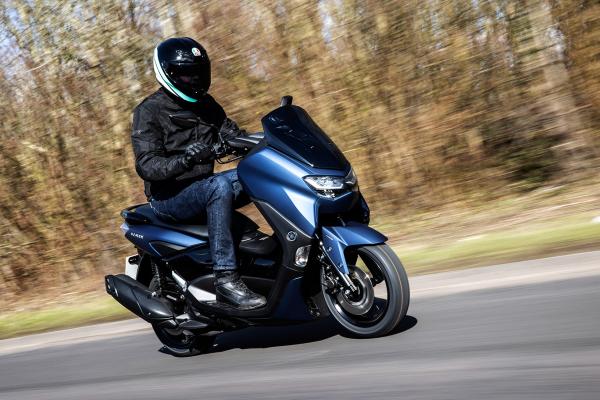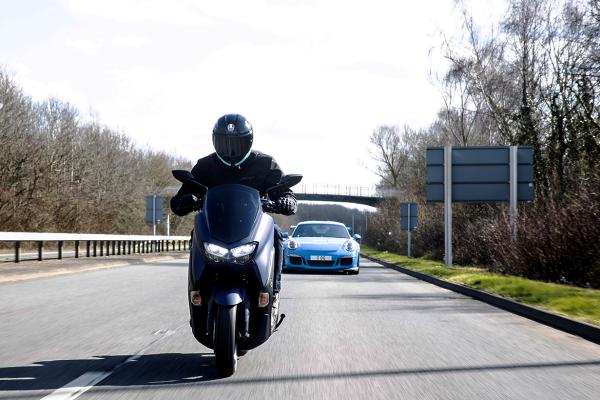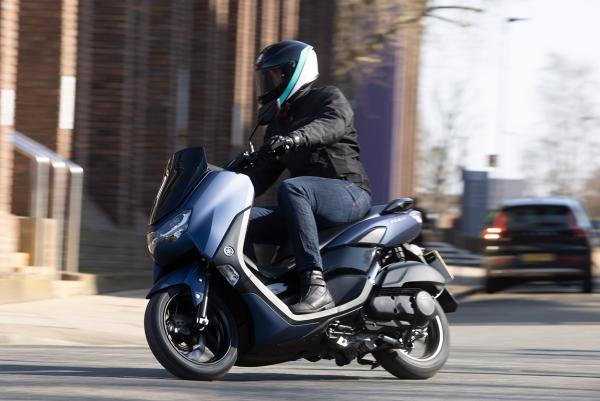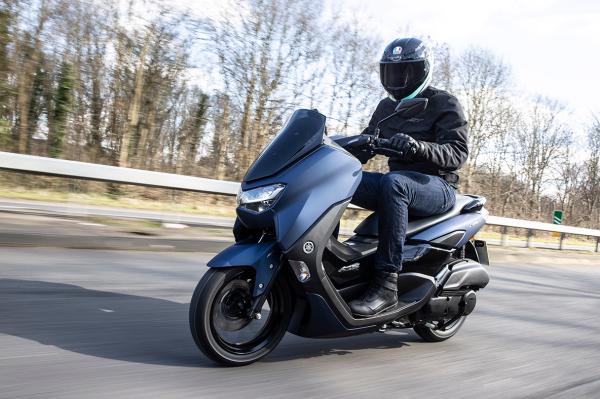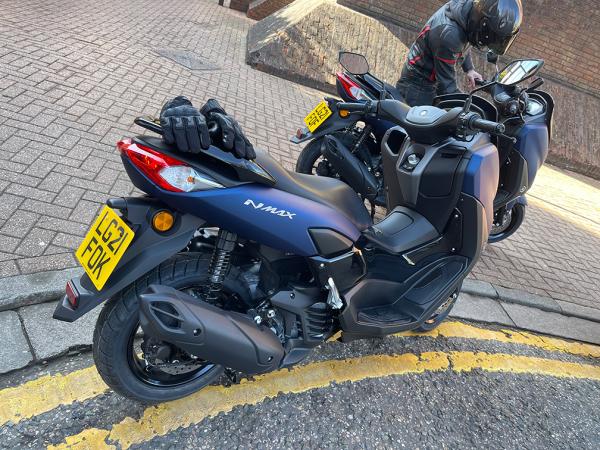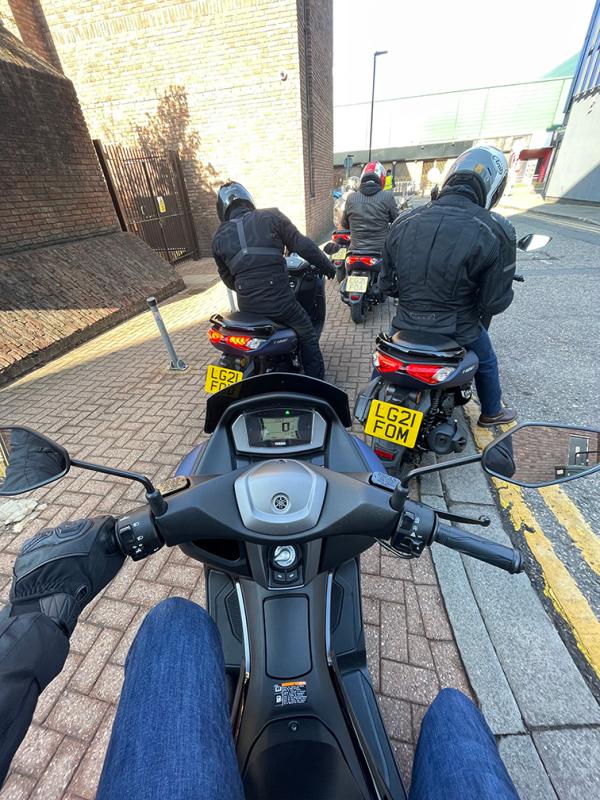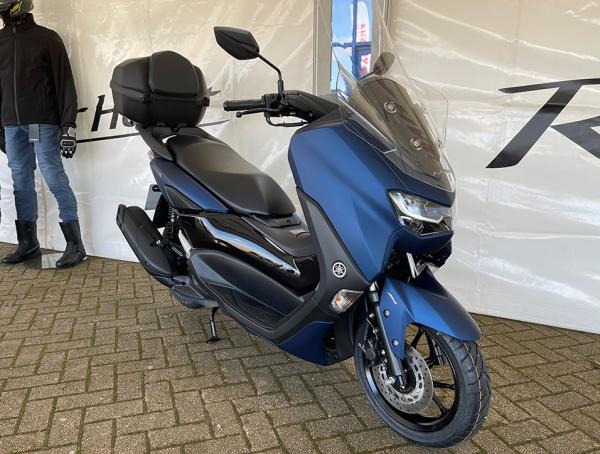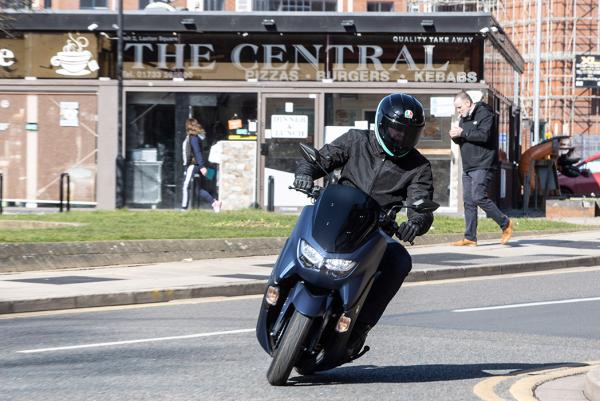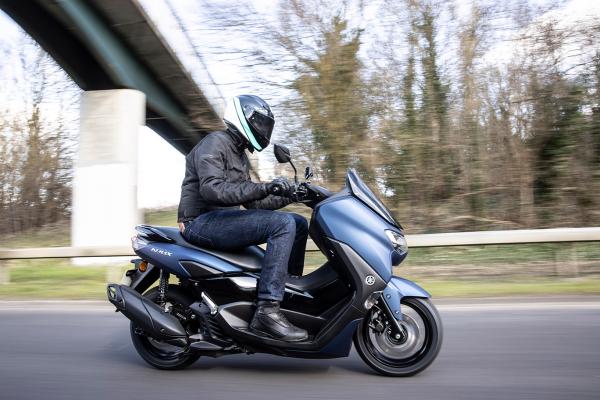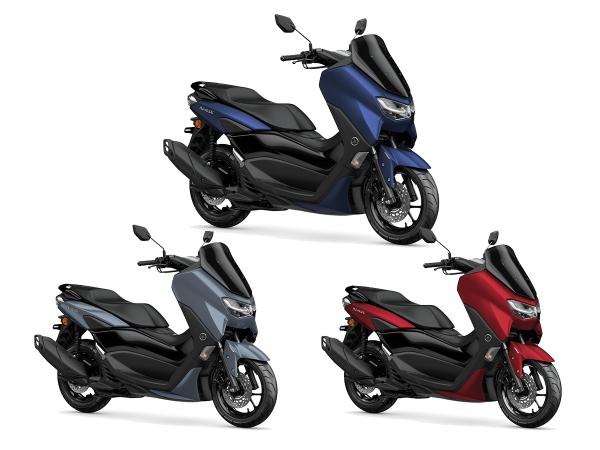Yamaha NMAX 125 (2021) review - is this the best 125cc scooter on the market?
This is the 2021 Yamaha NMAX 125, we pretended to be commuters for the day and set off around sunny Peterborough to review the Yamaha scooter.

Member for
54 years 8 monthsTHINK of Yamaha and chances are you’ll be thinking of the revolutionary R1, the ridiculously capable adventurer Tenere 700, or the ‘Dark Side of Japan’ naked MT range - not scooters. But the scooter range from Yamaha, along with the NMAX 125, is one of their highest selling unit categories, particularly in a new ‘covid’ era of solo-transportation.
At a recent press day I was able to see exactly what sets these scooters above the rest of the pack, gunning for the top spot with the Hondas and Lexmotos of the two-wheeled world.
Arriving in Peterborough there were two scooters set up for us to try out: the NMAX 125 and D’elight 125. Both poised as two very different approaches to the scooter and commuter market.
The redesigned style of the new NMAX caught my eye as soon as I rolled up to the Yamaha flags. Whilst the D’elight is what I’d consider the typical scooter - lightweight and small - the NMax is a tad more sports/maxi-scooter in its styling, with some top-of-the-line tech new for 2021.
If you fancy finding out more about the D'Elight, here's the link. But first we'll look at the new 2021 NMAX.
2021 Yamaha NMAX 125
I’ll just come out and say it. The NMAX really did exceed all of my expectations, and I was surprised at just how capable it was on all types of roads; it was exceptional fun.
We set off along some A-roads before heading into Peterborough centre, recreating a typical journey for a commuter, before heading ‘home’ on the dual carriageway.
Along the way I found that Yamaha had put a lot of thought into the ‘force flow’ of wind a rider meets on a scooter like this. The air is directed around the rider with deliberate wind deflectors, creating a cocoon-like protective shell. It was actually very comfortable to ride, with clear maxi style and sporty accents with a super comfy seat.
What's new on the 2021 NMAX?
There are fairly substantial updates for 2021. Namely, the BlueCore 125cc liquid-cooled engine with VVA (Variable Valve Actuation) and start-stop functions (plus TCS to deal with all the extra sports stuff). A new backbone frame that can support larger loads, and new adjustable rear suspension - all exceptional additions to an already well-spec'd and popular scooter.
Engine
At the heart of this scoot is a Blue Core 125cc motor that's Euro 5 compliant and putting out respectable numbers for the sector: 11.2Nm of torque at 6000rpm, and 12 bhp at 8000 rpm. All up the new NMAX weighs in at 135kg fully fuelled and ready to go.
This unit has been completely revised for 2021 with a new cylinder head, enlarged intake valve (now 20.5mm), and higher 11.2:1 compression ratio. For faster roads where higher power is useful, the Variable Valve Actuation system will kick in and switch-up the intake valve timing. You'll naturally notice the VVA doing its thing when it switches to the high-cam mode at 6500rpm and up, kind of like an extra bit of power suddenly gets found somehow.
It activates smoothly to provide that extra edge on a faster road and deactivates at lower than 5500rpm for a smooth riding experience. Thanks to the VVA, the usable torque output is optimised for low speeds in town, and high speeds everywhere else.
With all that speed and power, Yamaha has added a TCS system to reduce wheelspin, which you can turn off if you’re feeling brave. It wasn’t intrusive by any means.
Once the engine is warm, the new stop-start system will activate to primarily save fuel when in traffic. There is no starter motor to engage, rather the battery will engage the Smart Motor Generator to directly turn the crankshaft. This means a quiet and effective motor engagement, which is a bonus for meeting emissions regs too.
The ‘start-stop’ is a quiet system, and even if the engine turns off at a junction you can quickly re-engage it and pull away without delay, by just twisting the throttle. Both the VVA and stop-start system are game-changers on a scooter, for me.
Rider convenience
Convenience is probably the main selling point for a scooter, and I found the NMAX to tick all the boxes. As well as being comfortable in the seat, the NMAX comes with a 12v charger socket (not USB), smartphone connectivity with the Yamaha app, a smart-key system and decent underseat storage. I wasn’t able to fit my large AGV K6 helmet under the seat, but it’s got enough storage space (noted as 32L) for the basic items you may carry with you if you don’t fancy using a top-box.
The fuel tank is 7.1 Litres, and will be good for around 200 miles - but I can’t confirm that from a first ride as we were just pootling around town. The LCD screen is very clear and gives you all of the information you need - plus integration with your phone to notify you of any messages, calls and your phone battery level. The eternal rival to this scoot, the PCX, has an 8 Litre tank - I wonder if people would trade away VVA for a bigger tank and more miles?
The smart key light did flash a couple of times at speed, but there was no interference to the ride - I just put it down to going so fast that the key signal was being left behind. Yamaha have since let me know that it's due to keeping the smart-key in the glovebox due to Covid limitations on the day. They recommend keeping the key on your person when riding, and say this would solve the flashing light.
Meanwhile, new rubber engine bushes reduce vibrations at high speed - even maxing out at an indicated 64mph (with me on top is an achievement in itself) it was still really smooth.
As mentioned earlier, the new backbone frame is capable of withstanding the largest of lumps (i.e. me as the rider) and a large top box, which you could include if you go for the urban pack that also includes a larger screen.
Brakes and suspension
There are 230mm discs on the front and rear-mounted to the 13-inch wheels. Naturally with ABS, and the performance was solid throughout the day. Testing the brakes, front and rear, felt fairly solid, if a bit soft for applying the actual braking force - but that could be a positive for riders who may have a tendency to full-fist the brakes in a touch & go situation.
The wheels are newly designed, and typical for wheels of that size: you’ll have to be careful on roads that aren't smooth ashphalt. Turning in to some side-roads I had a few nervy moments on loose gravel, but nothing unusual on two wheels. You can really get a good lean on with the NMAX, without ever feeling like you’ll lose grip or be top-heavy enough to faceplant a roundabout.
The suspension set up consists of 30mm telescopic forks (100mm travel) and twin rear monoshocks (86mm travel). The suspension is solid for the road, nice and comfortable but with enough response if you find yourself on some uneven roads.
Verdict
If I was in the market for a scooter, I’d definitely be eyeing up the NMAX 125 - probably with the inclusion of the urban pack and its larger windscreen. I’d probably also go for the Ohlins preload and rebound adjustable shocks, because why not!
The NMAX provides an outstanding ride, it looks great and is perfect for urban commutes and the odd longer journey thanks to a high level of comfort. It’s really set a high bar for luxury maxi-sports-scooters in the 125cc segment, and the VVA and start-stop tech cannot be missed. Sure, you can find cheaper scooters, but it won't do all of this.
The NMAX is on the market for £3,399 OTR, you can get it in Anodized Red, Power Grey, or Phantom Blue (as in the pictures). Find out more on the Yamaha website.
3 things I liked
- Engine - the VVA system works well, and you have enough power in all situations.
- Wind-proofing - the cocoon is very real, and for a tall or short rider you'll feel right at home.
- Comfort - seat, suspension, brakes - it's all been dialed in perfectly, I'd say.
3 things I didn't like
- Underseat storage - it says it can fit an XL helmet, but I couldn't get mine under.
- Accessories - not 'reviewed' but looking at the accessories, they can be quite pricey.
- CCU - Communication Control Unit. I don't think it's necessary, calls and texts can wait - or get an intercom.
